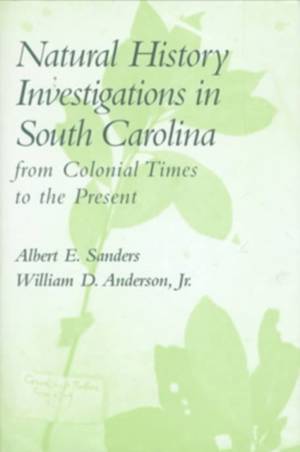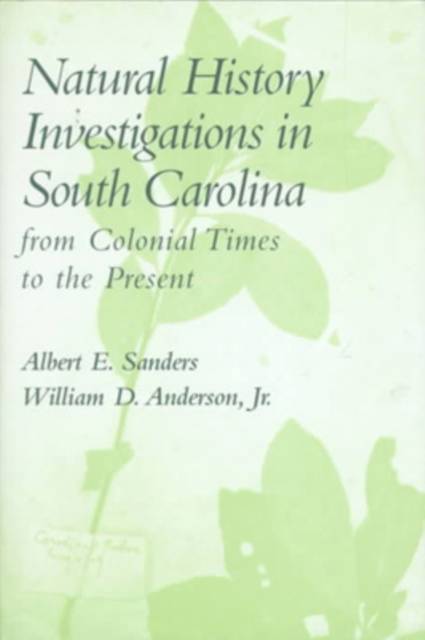
- Retrait en 2 heures
- Assortiment impressionnant
- Paiement sécurisé
- Toujours un magasin près de chez vous
- Retrait gratuit dans votre magasin Club
- 7.000.0000 titres dans notre catalogue
- Payer en toute sécurité
- Toujours un magasin près de chez vous
Natural History Investigations in South Carolina from Colonial Times to the Present
From Colonial Times to the Present
Albert E Sanders, William D AndersonDescription
From 1565--when Jacques Le Moyne drew the first known European illustrations of North American plants and animals--to modern times, South Carolina has been an important center for the study of natural history. Natural History Investigations in South Carolina from Colonial Times to the Present relates the story of the state's professional and amateur natural history investigations, especially in the fields of zoology and botany. Albert E. Sanders and William D. Anderson, Jr., describe the lure of South Carolina's diverse flora and fauna; the impact of social, political, and economic events on work in natural history; and the pivotal role Charleston has played in the making of the state's remarkable scientific heritage.
Soon after Charleston's founding in 1670, local collectors began sending specimens to such internationally renowned English naturalists as James Petiver and Hans Sloane. Sanders and Anderson chronicle these early endeavors and tell how Mark Catesby's illustrations, together with specimens sent by Alexander Garden to Carolus Linnaeus, brought South Carolina plants and animals to the attention of scientists throughout Europe. The authors recount the Charleston Library Society's early interest in the mysteries of nature as well as the groundwork laid by post-Revolutionary naturalists, including Stephen Elliott, for natural history's golden age in South Carolina from 1830 to 1860. Sanders and Anderson document the findings of these fertile decades and profile the people--John E. Holbrook, John Bachman, Edmund Ravenel, Lewis Gibbes, Francis S. Holmes, Henry Ravenel, John and Joseph LeConte, and Robert W. Gibbes--who formed a scientific community superseded only by those in Philadelphia and Boston.
Sanders and Anderson depict the degree to which the Civil War and Reconstruction curtailed activities in natural history. The authors credit a handful of dedicated naturalists throughout the state and at the Charleston Museum with the resumption of scientific inquiry at the turn of the century. They also reveal the importance of the state's institutions of higher education in creating and supporting this elite scientific community. South Carolina College (later the University of South Carolina) was home to distinguished faculty such as Robert W. Gibbes and the LeConte brothers. Clemson College became a center for scientific research and training in the twentieth century. Tracing natural history through the twentieth century, the authors assess the impact of two world wars and the Great Depression, the advances made during the 1950s, and the discovery of significant paleontological sites in the 1970s and 1980s.
Spécifications
Parties prenantes
- Auteur(s) :
- Editeur:
Contenu
- Nombre de pages :
- 378
- Langue:
- Anglais
Caractéristiques
- EAN:
- 9781570032783
- Date de parution :
- 01-10-99
- Format:
- Livre relié
- Format numérique:
- Genaaid
- Dimensions :
- 160 mm x 234 mm
- Poids :
- 748 g

Seulement chez Librairie Club
Les avis
Nous publions uniquement les avis qui respectent les conditions requises. Consultez nos conditions pour les avis.





